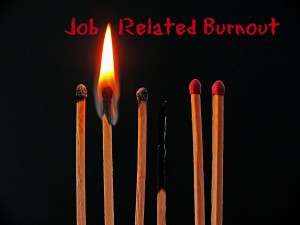
A few years ago, just before retiring, a friend told me she was fired as a pharmaceutical representative after 27 years with the same company. There were massive layoffs within her company as they attempted to cost-cut their way to a better bottom line. As a result, I can tell you firsthand 100% of those who remained with her company became cynical and burned out and did so almost overnight.
Recently I began reviewing the 6 mismatches between the job and the individual which can lead to job related burnout. The fifth mismatch in this series, absence of fairness, is the subject of today’s post.
Over the years I have had many pharmaceutical representatives call on my office. There used to be many reps touting twenty, twenty-five and thirty or more years with their company. When asked how long they would continue to work, all would tell me they would happily work for their company until the day they retired. Most of them had at least some gray hair.
Sadly, as the healthcare environment and the pharmaceutical industry began to change, most of the older representatives were let go because of cost cutting measures, reorganizations or mergers, many just before retirement. This is why those who remained behind burned out so quickly. Who can blame them?
Today, most of the pharmaceutical representatives who come to my office are in their twenties or early thirties and they switch companies often. Few of the “gray hairs” remain. This kind of corporate purging is seen as tremendously unfair. The result – rampant industry wide employer distrust. I hear it everyday.
Many other industries across the country have employed these same tactics. In addition, less productive and inefficient employees are retained while the “last hired” are let go, only to be hired back as contract workers at less pay in order to fix the problems those left behind can not fix. Or, full-time employees are made into part-time employees to save money on salary and benefits. All of these scenarios create a sense of absence of fairness leading to an embittered, burned out workforce.
Most Americans carry with them a sense of fairness. We want to see people treated fairly, we want to treat people fairly, and we want to be treated fairly. This is ingrained in most of us from an early age. We feel uneasy, even distressed, when we see fairness being disregarded or violated. Nowhere is this more true and obvious than in the workplace.
In her book, The Truth About Burnout, Dr. Christina Maslach asserts that, “A workplace is perceived to be fair when three key elements are present: trust, openness, and respect.” In her studies, she found all three of these elements to be essential in order to maintain a person’s engagement with work. In direct contrast, the absence of any of these three key elements will contribute directly to job related burnout.
You can know when a sense of fairness is being eroded within an organization when you begin to notice the following:
- When an organization begins to take actions with little concern or input from employees.
- When short-term financial performance is sought in lieu of building organizational community.
- When management no longer takes staff member’s assessments of services and problems at face value.
- When staff are viewed as being primarily concerned with protecting their job more than the welfare of customers, patients or clients.
- When open and honest communication is no longer a priority or even sought.
- When management begins to value secrecy more than openness.
- When management changes the parameters or modes of operation without any explanation.
- When organizations restructure to cut costs and let go of their most experienced and productive employees while retaining the least experienced and productive workers because it saves money.
- When organizations forgo raises and/or employee benefits with the excuse they can not be afforded yet increase the compensation packages or pay out large bonuses to those in management.
The uneven and unfair distribution of rewards is probably the single most important impediment to building a sense of community among employees. This will undermine and destroy the development of productive relationships with fellow coworkers.
You know, it just doesn’t have to be this way. Much can be done to instill in employees the sense of trust, openness and respect necessary to build community and avoid burnout.
Please, come back here for the next post in this series on the job-employee mismatches which lead to job related burnout and what to do about them. In the meantime, do you have a sense of trust, openness and respect in your current work environment? Do you feel this is something that could be strengthened to the benefit of your organization and to you personally? What practices do you see as unfair within your organization?
Would you like to add to the discussion? I would like to hear from you.
I would add other things to this, like:
– When management refuses to staff a department according to needs in order to protect the bottom line and, consequently, their own bonuses.
– When new work is assigned to non-managers by managers without consulting the non-manager about their existing workload and feasibility of task transfer and no reward or compensation is given for the new responsibility
Great article – pretty well described most corporations I’ve worked for, unfortunately.